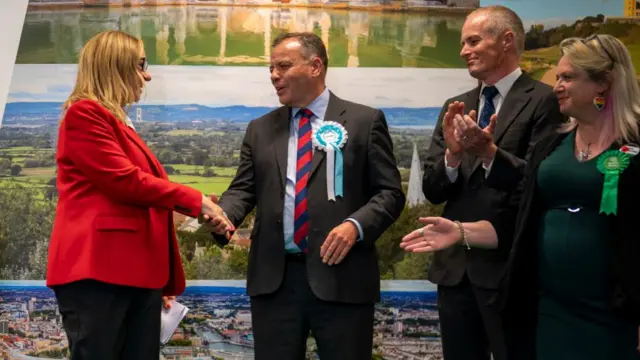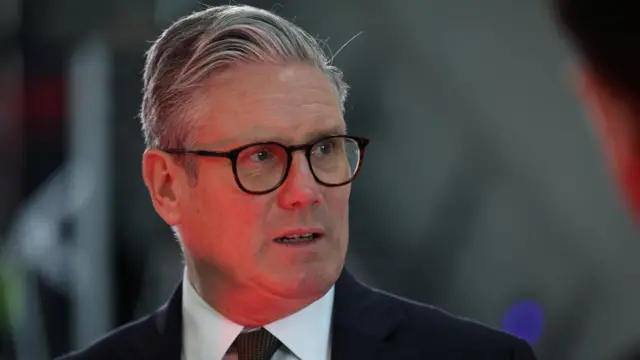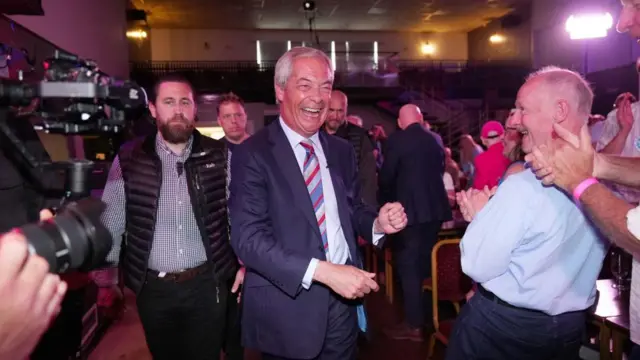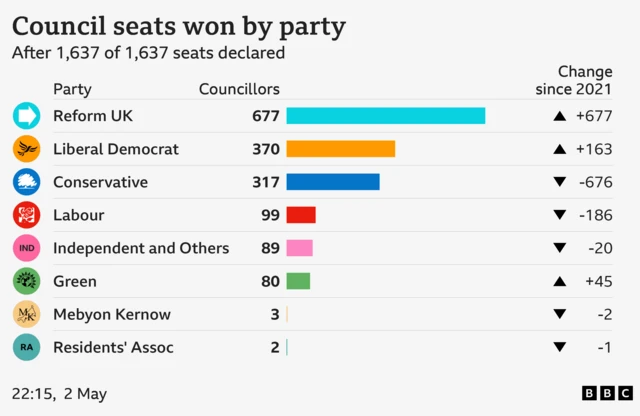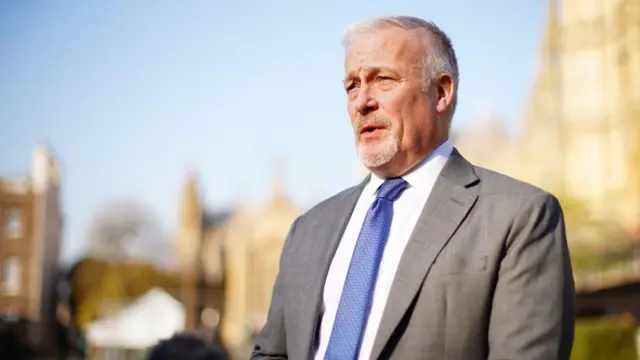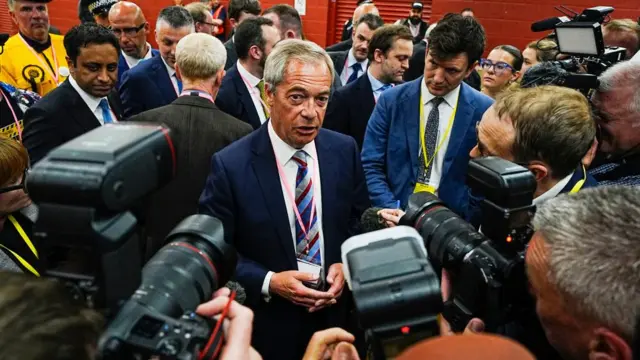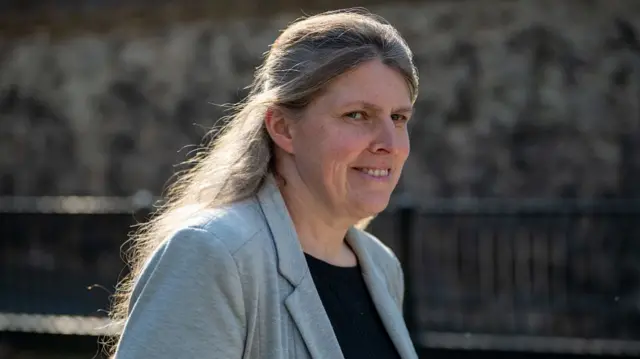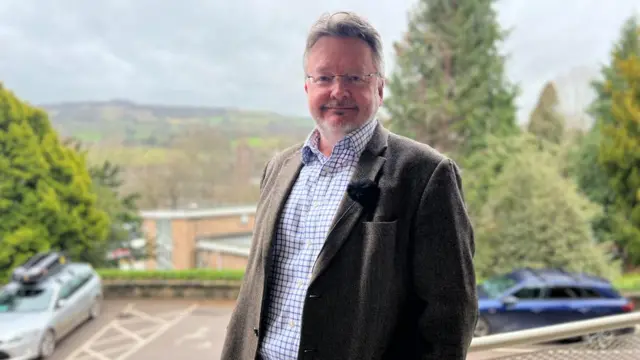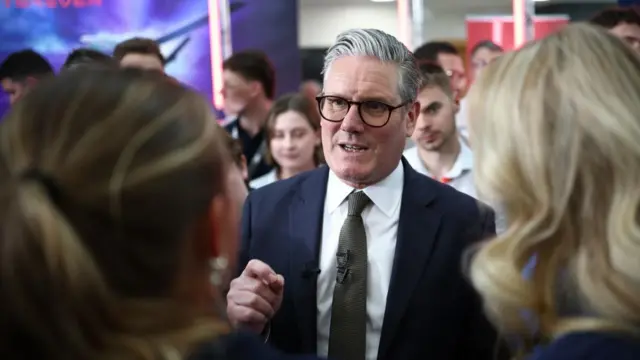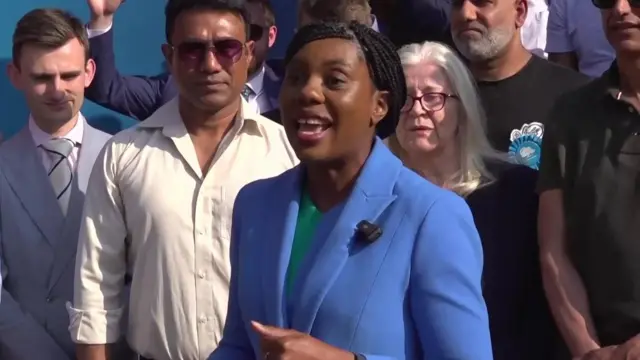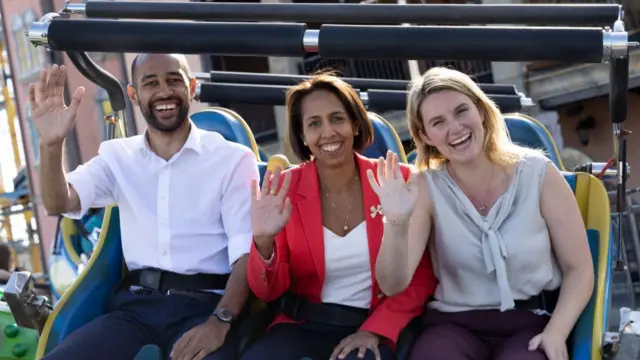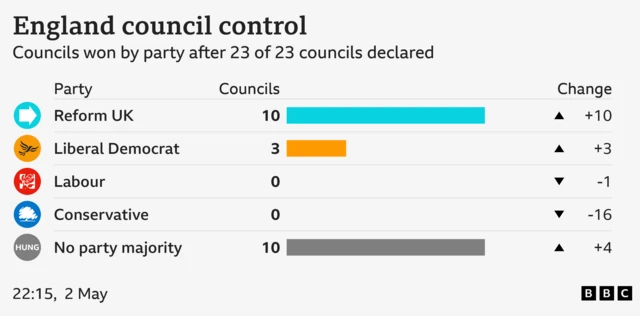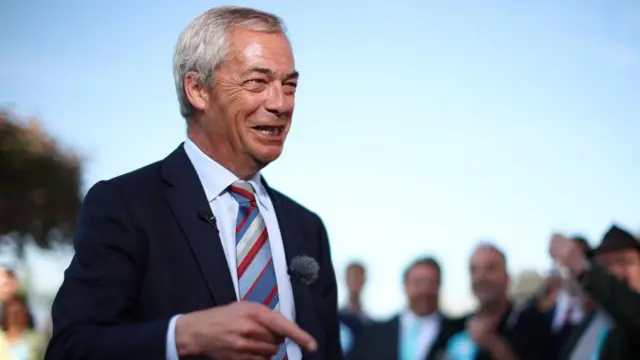Reform's big night leads Conservatives and Labour to digest lossespublished at 13:05 BST 3 May
 Jenna Moon
Jenna Moon
Live reporter
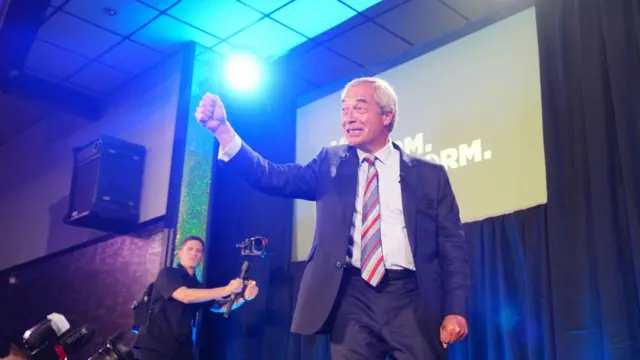 Image source, PA Media
Image source, PA MediaIt's been a whirlwind couple of days for Reform UK after the party won 677 seats out of around 1,600 in local elections in pockets of England.
But while party leader Nigel Farage is setting off fireworks and basking in the post-election success, both the Labour and Conservative parties are taking time to reflect.
Both main parties suffered significant losses at the polling booths. The Tories shed 676 seats, most of which were scooped up by Reform or the Liberal Democrats. Meanwhile, Labour claimed just 99 seats - though the party has held on to three mayoralties.
Tory MP Richard Fuller told our colleagues on the Today programme this morning that "voters can sense that politicians don't have answers to their problems and are trying to send a message to the government".
As our political editor Chris Mason writes, there are lots of questions about how Labour and the Conservatives will respond.
We're closing our live coverage now, for more on this story:

